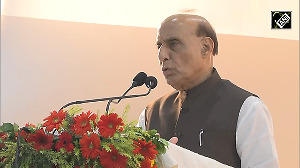"UK Athletics can today confirm the adverse finding for Tetrahydrogestrinone (THG), an anabolic agent, in a urine sample given by Dwain Chambers in an out-of-competition test conducted by the IAAF on August 1 2003," a statement said.
"The B sample analysis has been conducted and confirms the finding in the A sample.
"Dwain Chambers has now been suspended by the IAAF pending the result of a hearing before an independent Disciplinary Committee.
"It is inappropriate for UK Athletics to make any further public comment in relation to this case until it has been considered by the independent Disciplinary Committee at a disciplinary hearing -- the date for this hearing has yet to be set."
THG is a newly discovered steroid, tweaked by chemists to make it undetectable under normal testing conditions. It was unearthed by the United States Anti-Doping Agency when an unnamed track and field coach provided it with the names of U.S. and international athletes who he said were using the steroid.
USED SYRINGE
The coach gave USADA a used syringe that contained some of the substance and a test was developed.
Chambers, who denies knowingly taking any banned substance or in any way trying to cheat, is one of five athletes to have tested positive.
Chambers's lawyer Graham Shear said in a statement: "I believe the results of the B test do not provide any conclusion to this matter whatsoever.
"There is still a procedure to follow and a full hearing of the evidence to take place. I will now firmly state that Dwain Chambers has made no admission whatsoever that he has taken THG or any other banned substance.
"My client adamantly maintains that he does not, nor has he ever, consumed performance-enhancing stimulants.
"This is just the beginning of a lengthy process. Until satisfactory explanations and answers for these questions can be provided, nobody is in a position to make judgement on Dwain Chambers's alleged culpability."
A statement issued by former British sprinter John Regis, director of Chamber's management company Stellar Athletics, said that Chambers would receive their full support.
"It is increasingly evident that athletes have to unconditionally rely on guidance and expertise of those advising them...they remain largely unprotected while entirely responsible."
The test for the newly discovered tetrahydrogestrinone was conducted in Los Angeles on Monday. Its result was leaked on Thursday evening and could leave the Briton's career in tatters.
Chambers will now put his case as to why he tested positive for the steroid.
Shear said there were a number of key questions which needed to be answered -- is the drug actually banned, what exactly is it and what are its supposed effects?
He continued: "Indeed we need to question the entire testing process and procedure."
However, athletics operates a "strict liability" policy and the 25-year-old is almost certain to be banned for a minimum of two years.
Under the guidelines of the British Olympic Association's anti-drug stance, if Chambers is ultimately found guilty he would receive a life ban from the Olympics.







